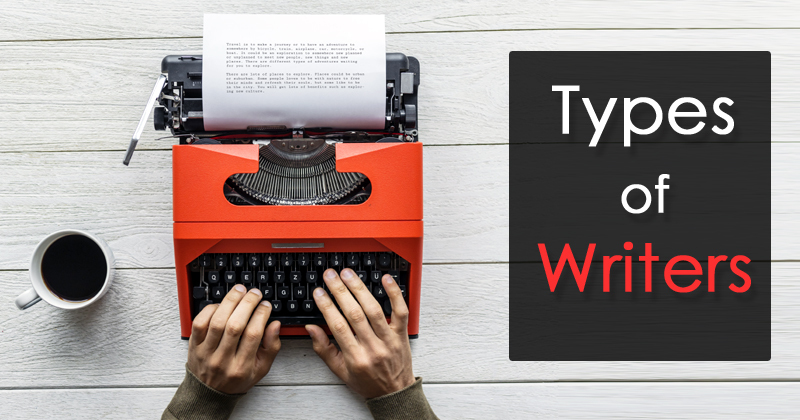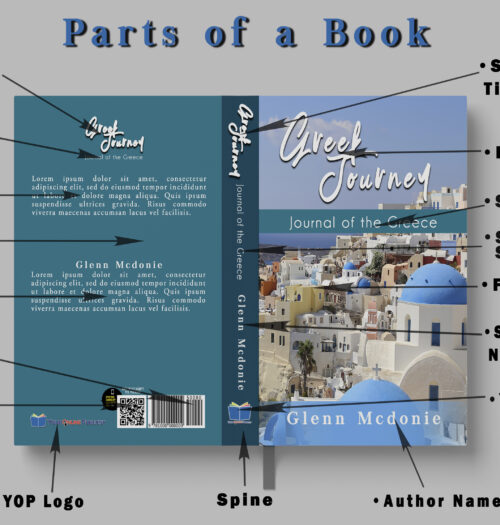
Types of Writers Styles
A piece of writing can be written in different styles based on the types of writers. Be it a paragraph, essay, novel, non-fiction, poetry et al each one has an essence and style attached to it. The type of writing a writer chooses depends on what he or she wishes to accomplish. He keeps in mind the sort of material being discussed and has an intent that he wants to have on the reader.
Generally, there are four types of writers styles. In practice, though these types are normally mixed together.
1. Narrative:
A narrative must have a conflict that is to be overcome. This is the core of any narrative form of writing. Here the narrator tells a story much like a narrator in a play. In essence, the story told here are true stories. It is normally told in the first person. True narrative writing is unusual and it is demanding. The ‘overcoming’ should in turn lead to some form of resolution. Simply describing or explaining one’s surroundings is not sufficient. One needs to establish the setting, an explanation of the challenge, and the resolution therein. In other words, the author alongside his distinct voice needs to set it in a nicely woven plot structure.
2. Descriptive:
Descriptive writing paints it like a picture. The description tells what something feels like, sounds like, tastes likes, looks like, or smells like. Action is absent therein. In its true form, nothing much happens in Description. The onus is on one’s immediate subjective perceptions. In essence, descriptive writing connects the outer world with our inner feelings. Here, a verbal picture of what we experience and feel at any moment is created. Many vivid and rich adjectives and adverbs are used in this regard. Descriptive writing is usually written in the first-person point of view. It is much more emotional and personal than other forms of writings. Often, descriptive writing is mixed in with other styles as a supplement.
3. Expository:

Expository writing explains things about a subject. The purpose here is to expose the different facets. It is generally called ‘information writing’ as it provides information about a person, place, thing, or idea. Since expository paragraphs are factual, emotions are amiss and it is usually written in the third person. It is best created by the use of clear reasons, facts, and cause and effect relationships. Also, expository paragraphs and essays are sometimes confused with descriptive writing, as both tend to spend a lot of time describing things. The difference, however, lies in the focus of subjects. Expository description tends to focus on external objects. Descriptive paragraphs, on the other hand, tend to focus on our internal emotional responses.
4. Persuasive:
This type of writing is probably the most common form of writing at the academic level. Argumentative or Persuasive writing attempts to convince the reader that the point of view or course of action recommended by the writer is valid. Towards this regard, the writer must develop a topic that is well defined and debatable and has more than one view about it. The author must reflect on other sides of the topic so that the strongest viewpoint to counter the others can be presented. If one is not sure how to do this, then one must simply stick to one’s side of an argument. Persuasive writing attempts to prove your point of view. It is usually written from an objective, third-person point of view. Such an approach helps demonstrate one’s objectivity.
‘Argumentative’ writing is said to be more rational and empirical, whereas “persuasive” writing will often use emotional appeals to manipulate the reader’s mind. However, it is commonly agreed that the two terms as synonymous. Some write it totally dispassionately without using loaded language to win an argument. Also, analytical facts are always handy in persuading the reader of one side over another.
Types Of Writers
Just as there are styles and types of writing, there also exist different types of writers, each with their unique style specific to them. Writers can be categorized in a lot of ways. Given under are some the most well-accepted and practiced types of writers.
1. The Perfectionist:
He is never satisfied with his writings, and keeps constantly writing; and re-writing his drafts. He is a loner and self-obsessed with his work.
2. The Sprint Writer:
He is fast with words; knows not only how to get the idea but they know to run it fast. He gets done with the task quickly and experiences short bursts of high productivity. And he is never at a loss for words.
Suggested read: Tips on Writing a Novel
3. The Snob:
He talks more about his writing than the actual writing. He is full of advice for other writers and He is shallow with little mettle.
4. The Plot-savvy writer:
He outlines the plot and character before start actual writing. He follows a methodical; sticks to the original plan; and follows the detailed agenda.
5. The Quirky Writer:

He starts with a single idea and then takes it organically from thereupon. He doesn’t plan much and follows it in an evolutionary style.
6. The Storyteller:
The storyteller is urged upon by the internal impulses to narrate his experience. There is a compelling need to express himself and his experiences are normally a treat to read.
Additionally, some writers are Idea Machine. They get ideas from around everything and pens them down. The closet writer often is unaware of his own latent talent and never takes it to the professional level despite being good at it. And then some writers need to escape from their immediate reality and they delve into a self-expressive piece of writing. They think about quitting their job and take writing full-time.
Now that types of writing styles and types of writers are explained, we realize each one has its respective significance and a certain place in the mind of readers. Well, to each his own.

Related Post

The Greatest Difficulties Authors Face
There are certain difficulties authors face. Despite the brilliance they




